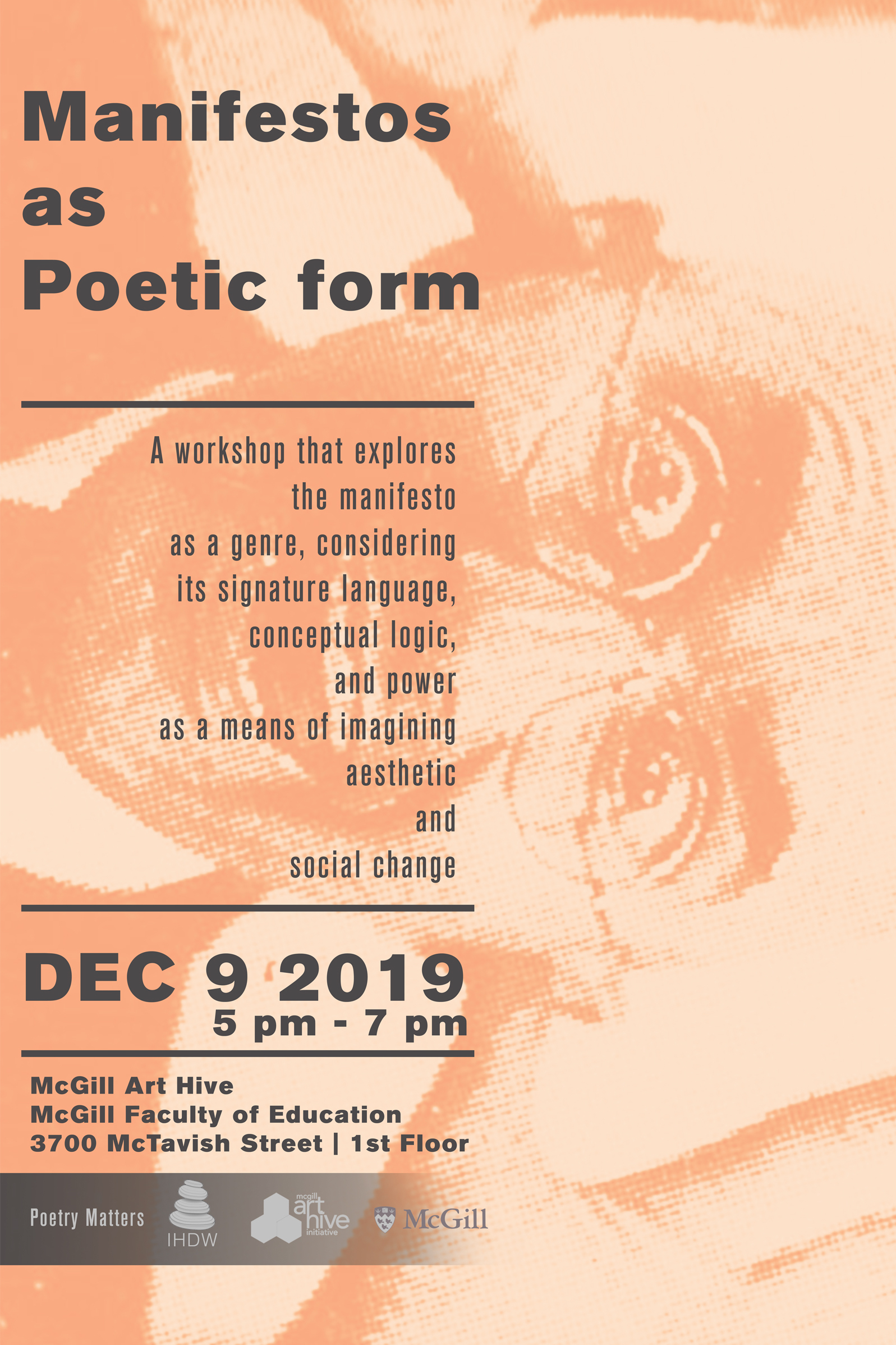On December 9th, 2019 the IHDW hosted a participatory art-making workshop in conjunction with Poetry Matters.
The workshop explored the form of the Manifesto and examined the renewed potential of the format as an artistic site in the guise of happenings around contemporary cultures. The night consisted of several participatory poetry and manifesto making activities, led by Nadia Moss, the Art Hive Artist-in-Residence and Aron Rosenberg, starting with a playful deconstruction of some statements of classical manifestos, read aloud and separated from their context in the cut-up style, to which participants got the chance to reflect upon, agree and disagree, with many of the perspectives of artists and poets throughout the last century. Rather than employing a discursive style, the agreements and contentions were played out in a "musical chairs" style game, which lent to a visual and dynamic style of reflection upon the last century's artistic motivations.
Another participatory activity followed in partners engaging in a "Make-Your-Own-Three-line-Manifesto"
Finally, the night ended with a discussion led by professor Professor Miranda Hickman and Graduate Students Lisa Banks , on the form of the Poem via the Manifesto form and the impact on its changing form through out the last century leading up to the return of the declarative Manifesto style in feminist manifestos including the Red Stockings Manifesto (1969), the Xenofeminist Manifesto (2015) and the Canadian Indigenous Girlfesto (2018)
More generally, we will explore the potential of the manifesto as a genre through which to empower and give voice to marginalized communities, recognize and articulate dissatisfaction, think and work for change, and dream toward a better future -
Miranda Hickman


